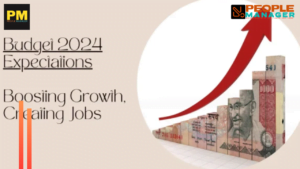Flexibility is a top factor for career decisions for women: Deloitte’s report
According to the survey, more women are unable to disconnect from work, while having the most responsibility for family responsibilities. And a lack of flexibility at work is influencing career choices—more women worldwide have left their jobs in the last 12 months than in 2021 and 2020 combined, with a lack of flexibility cited as one of the top reasons.

Flexibility is a top factor for career decisions for women: Deloitte’s report
Some evidence of success for women in the workplace include a decrease in fatigue, a decrease in non-inclusive behaviors, and enhanced hybrid experiences.
According to Deloitte’s Women at Work study, a survey of 5,000 women across 10 countries, there has been a considerable fall in the number of respondents who feel safe talking about mental health in the workplace.
According to the survey, more women are unable to disconnect from work, while having the most responsibility for family responsibilities. And a lack of flexibility at work is influencing career choices—more women worldwide have left their jobs in the last 12 months than in 2021 and 2020 combined, with a lack of flexibility cited as one of the top reasons.
Health challenges
This year’s study includes new information on how women’s health difficulties affect their working lives. One in every five women reports having health problems related to menstruation or menopause. Many people say they work through their pain and discomfort since there is still a stigma attached to these topics.
“While our research shows some signs of progress for women in the workplace over the last year, it also highlights the work that still needs to be done,” says Deloitte Global Inclusion Leader Emma Codd.
“When it comes to critical workplace aspects like mental health support, we’re seeing a worsening picture.” Furthermore, the vast majority of respondents do not believe that their employer is taking concrete steps to fulfil its gender equality commitments. “Employers must go beyond setting goals and policies to consistently foster a more inclusive and respectful work environment in which all women can succeed,” Emma added.
Gender equality
“While Southeast Asia strives for gender equality, the findings of Deloitte’s Women @ Work survey remind us that much work remains to be done.” We must prioritise supporting flexible work arrangements, providing mental health assistance, and establishing welcoming conditions for women to thrive. Only then will we genuinely empower women in the workplace and beyond,” said Deloitte Southeast Asia Talent Leader and SheXO Programme Leader Seah Gek Choo.
“Despite Southeast Asia’s recent shift towards hybrid working models, many organisations continue to struggle to provide the necessary flexibility in working hours, particularly for women.” Because workplace flexibility is an important factor in women’s career decisions, organisations must not only offer flexible working policies, but also create an environment in which women feel empowered to use them. This is critical for firms to be competitive in today’s talent landscape,” Gek Choo says.
Flexibility underpins career choices, while hybrid experiences improve
The research this year emphasised flexibility as a major requirement for women and a key component in their employment selections. Despite this, less than a quarter of the women polled claimed they have a high degree of flexibility over where and when they work, and a lack of flexibility around working hours is one of the top three reasons given by women who quit a job in the previous year.
There is a link between flexibility and employer loyalty, with two-thirds of women in very flexible work arrangements planning to stay with their firm for more than three years, compared to only 19% of women in non-flexible work arrangements. However, many women are hesitant to take advantage of flexible work options—97% believe that requesting or taking advantage of flexible working would reduce their chances of promotion, and 95% believe that their workload would be adjusted accordingly if they moved to a flexible working arrangement.
A third of the women polled reported a lack of consistency in working hours in hybrid arrangements, as well as a lack of flexibility in their working habits. While experiences with hybrid work have improved this year, with fewer women reporting exclusion from meetings, 37% of women still report exclusion while hybrid working in the past year, compared to 58% last year, and nearly a third say they don’t have enough exposure to senior leaders, compared to 45% last year. While this is a step forward, there is clearly still cause for concern.
Greatest responsibility for household tasks, partners’ careers is a priority
Women continue to bear the majority of the burden for domestic work at home, in addition to their paid work. These tendencies are especially prevalent among women from ethnic minority groups, who are more likely to handle the majority of household chores.
Furthermore, more than one-third of women feel compelled to prioritise their partner’s career over their own, often because their partner earns more money. More over two-thirds of women believe their partner earns the majority of the money. Even among women who are the major earner, nearly one-fifth feel they must prioritise their partner’s career over their own. This may lead to a loop that reduces women’s opportunities to earn more.
Poor mental health and experiences of non-inclusive behaviors persist
Mental health remains a key worry for working women, according to the 2022 research. While respondents report a slight improvement in mental well-being, fewer women report feeling burned out this year compared to last.
Only 37% rate their ability to switch off from work as “good,” down from 45% last year. Meanwhile, the stigma surrounding workplace mental health persists, with only a quarter of respondents feeling comfortable discussing mental health in the workplace—a significant decrease from 43% in the previous report. Furthermore, many employees believe their employers do not provide adequate mental health support. These difficulties are especially prevalent among women from underrepresented groups, who are more likely to report feeling burned out and less likely to feel comfortable discussing mental health in the workplace.
Along with these difficulties, women are affected by broader societal issues. Women’s rights are the top issue for nearly six in ten (59%) of respondents, followed by financial stability (58%), mental and physical health (both at 56%), and personal safety (54%). LGBT+ women are more worried about women’s rights, whereas women from ethnic minority groups are more concerned about their financial stability.
More over four out of ten (44%) women report harassment and/or microaggressions. Despite a decrease from last year’s 59%, these figures are still far too high, and more than half of women who experienced these behaviours did not feel comfortable reporting them to their employers. In particular, LGBT+ women (76%) and women from ethnic minority groups (53%) reported increased non-inclusive behaviour in the previous year.
Health issues continue to be a challenge
Many working women face health issues connected to menstruation and menopause. More than 40% of them report dealing with menstrual pain or symptoms, while 20% deal with menopausal symptoms.
When asked what benefits businesses may provide to help women, more over half of respondents stated they thought employers should provide paid leave for women experiencing health issues connected to menstruation and menopause. However, less than a third said their employer currently provides paid leave for menstrual symptoms, and only one in five provides paid leave for menopause symptoms.
Gender equality at leadership
Organisations with truly inclusive cultures, according to the participants, support their careers, work/life balance, and cultivate inclusiveness. Women who work for Gender Equality Leaders are more engaged, have better levels of well-being, and are more satisfied with their jobs. They are more likely to benefit from high levels of support and better hybrid experiences, as well as feeling more connected to their employer and considerably more motivated and productive at work. The women who work for these organisations are comfortable reporting non-inclusive behaviours; they are supported by their employers in terms of work/life balance; and they all say their careers are not developing as quickly as they would want.
“Only 5% of women see their employers as leaders in gender equality, which should serve as a wake-up call that more action is needed,” says Michele Parmelee, Deloitte Global Deputy CEO and Chief People and Purpose Officer. “Women are an important workforce cohort, and our data shows that when organisations prioritise improving women’s workplace experiences, they are more engaged, productive, and want to stay with their employers longer.” It’s not only the ethical thing to do, but it’s also a win-win for leaders to foster an inclusive atmosphere in which all women can succeed.”








